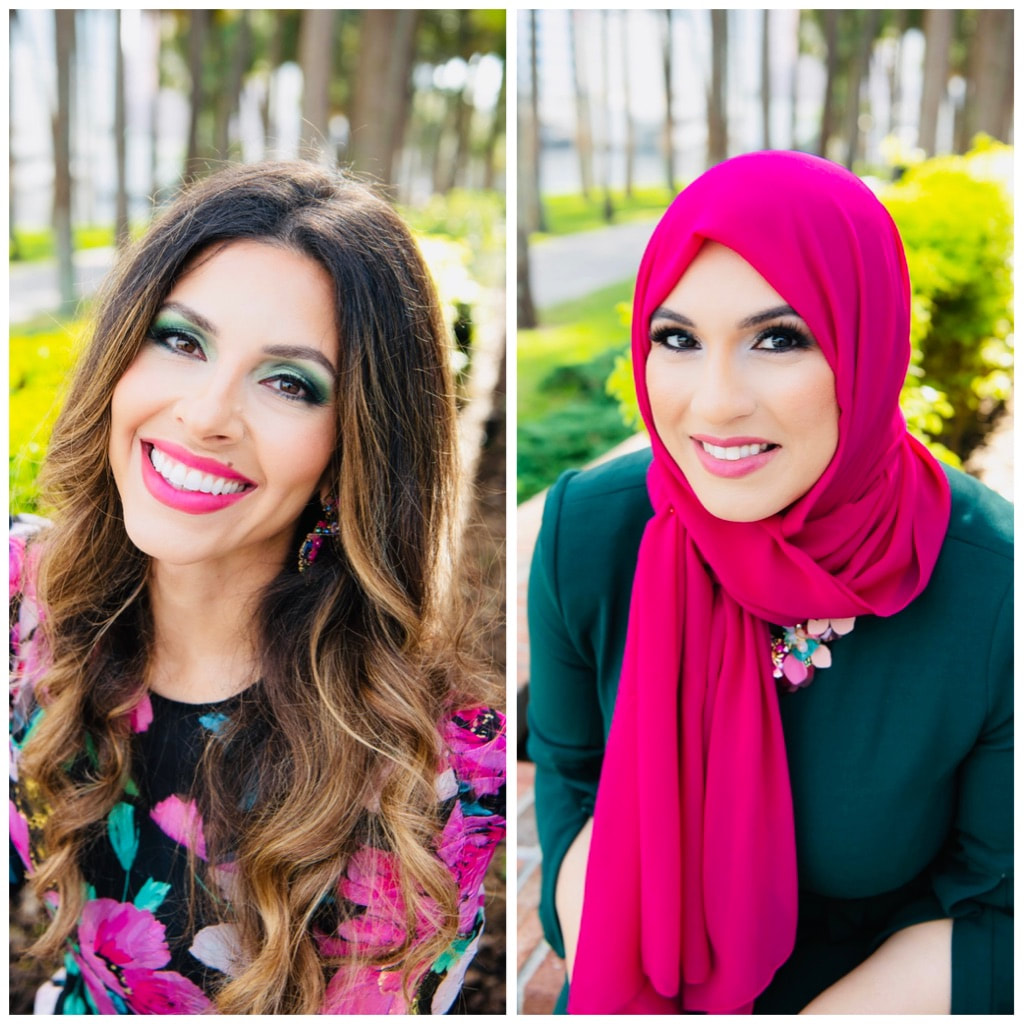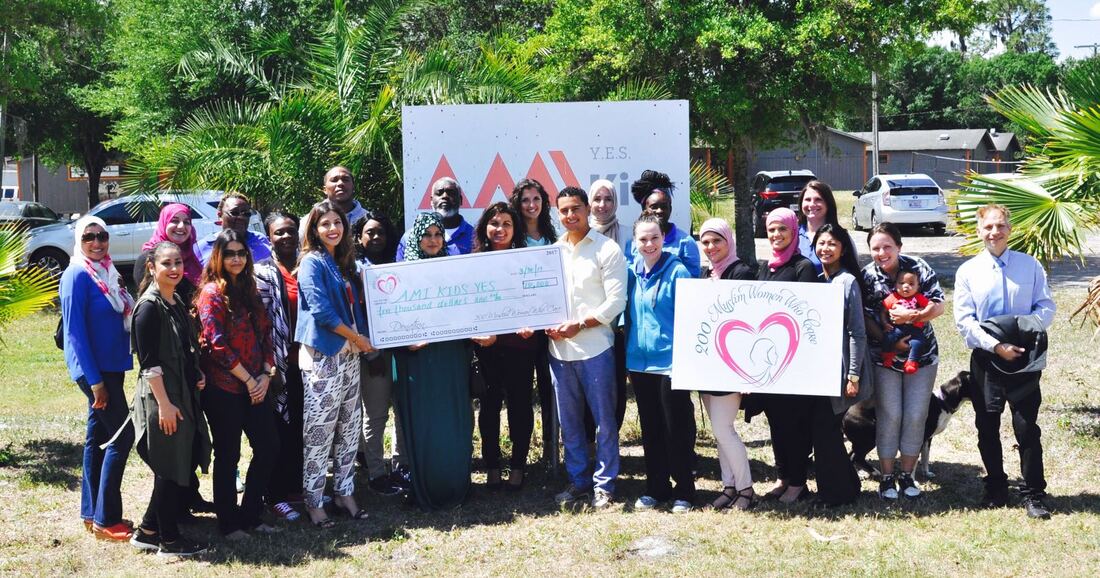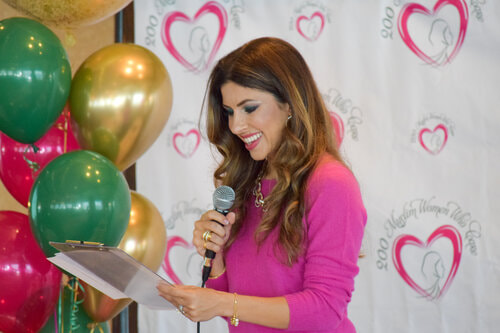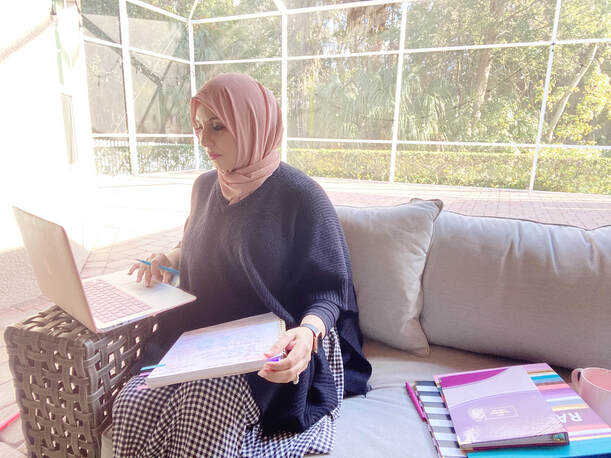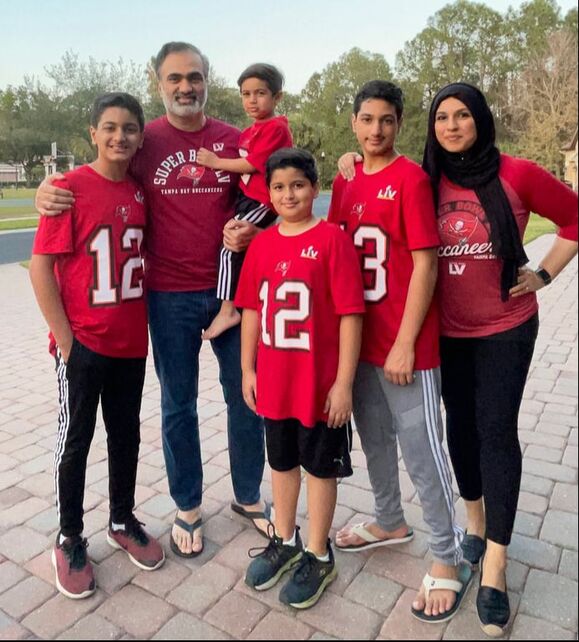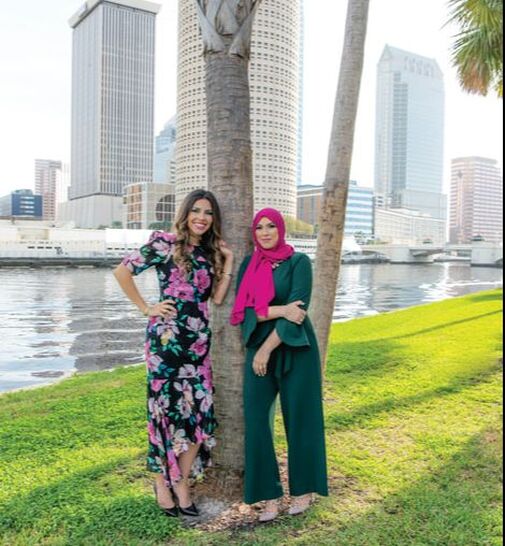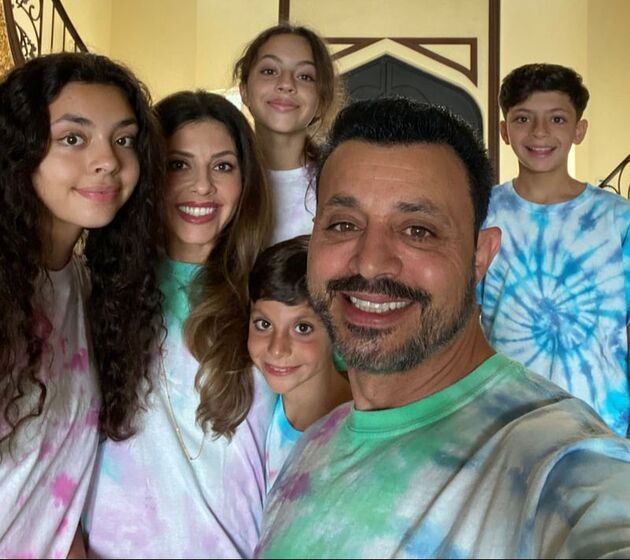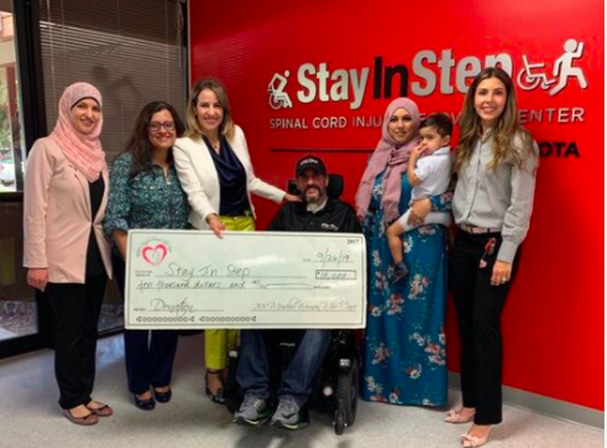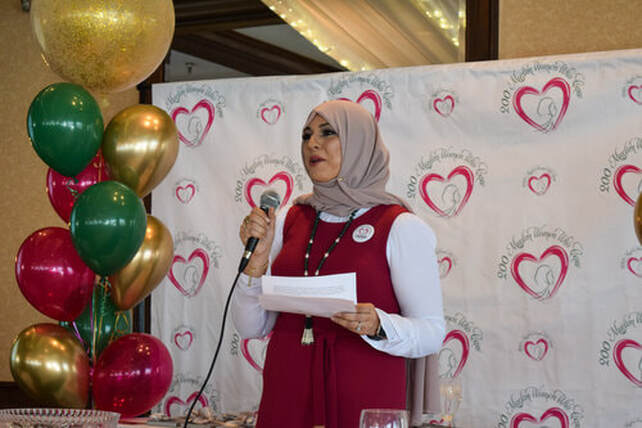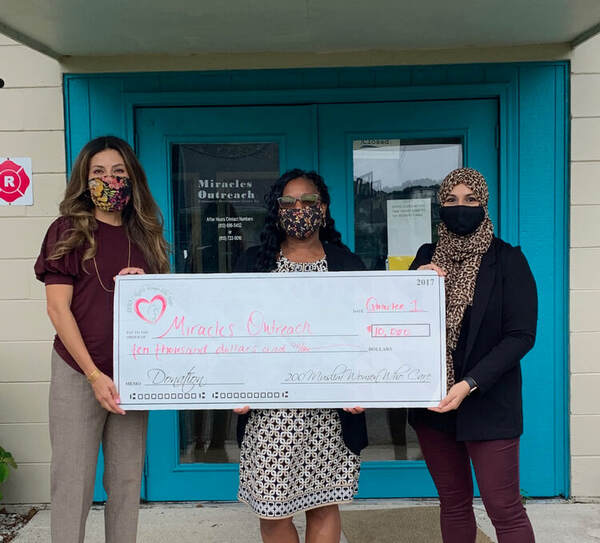|
This is the most special spotlight, because I had the chance to interview, not one, but TWO incredible women who partnered with each other to impact the Tampa Bay community by founding their non profit organization, 200 Muslim Women Who Care. Dyma and Farah are committed to creating positive change with a mission that brings together and empowers women to actively improve our local community. Their services provide financial support and service to existing charities and initiatives that support the large scope of need that exists throughout the Tampa area. This Spotlight reveals how both women consider it their duty as human-beings to serve others in need, while disclosing their journeys to discover their purpose. Dyma and Farah are incredibly inspirational individuals in their own right, yet they each expressed a desire to point out women who are their heroes in our community that they wish to shed light on. They also discuss the stereotypes and bias that both women have experienced in their lives and careers, as American women who are Muslim. Read this Spotlight to see a truly glowing example of the value of female leadership that is Dyma and Farah! 1. Rarely is someone's journey linear. Can you explain what each of you wanted to be be when you grew up, and how your career landed you where you are now? DYMA: It’s funny to think about now, but for a brief time when I was a kid, I wanted to be on the Home Shopping Network saying, “Let me convince you to buy this!” Well, now I’m all about: “Let me convince you why you should help this cause!” My plan was to be a journalist, but when I took interpersonal and organizational communication classes as an undergrad at the University of South Florida, it sparked a fascination with leadership in communication. My professor, Dr. Loyd Pettigrew, took me under his wing and is still my mentor today. I learned a lot about myself and about how we empathize with and see others. I interned with what is now Creative Loafing and Southwest Airlines, where I eventually worked. The plan was to get my master’s degree at Northwestern, but then I met my husband a week after graduating from college. I may have left the workforce after my first daughter was born, but I definitely never stopped working. I am raising four children, supporting my husband with his projects and started a passion project, the non profit 200 Muslim Women Who Care. We are a group of philanthropic women who collectively raise and donate $20,000 each quarter to worthy causes in Tampa Bay. What started off with just wanting to give back by doing the right thing, has become a mission that has more impact than I ever could have imagined, both in the community and for me personally. FARAH: Oh yes, I think most of us can say we have acquired careers that are far from what we wished for as a child! When I was younger, I dreamed about being an archeologist or a marine biologist! Although I did watch a lot of Indiana Jones growing up, it was more about the romanticized idea that I had about these careers: exploring faraway lands and vast oceans, freedom to explore; interesting people to meet. As a kid I was often lost in these daydreams but looking back now I realize I chose these careers because they offered me a way to escape the world around me in order to find myself. I grew up in the stereotypical Asian household. My very strict immigrant Indian parents dictated everything I was meant to do, my career choices, who I could and could not be friends with and how I dressed. At the time I felt suffocated, but now I realize that this was the way they were raised, and that they believed they were doing what was best for me. As a result, when I graduated high school it was understood that I had to become the first doctor of my family. I didn’t know or have a chance to explore where my true passion lied. But I did what was expected of me and studied pre-med. I hated it, failed miserably, and quickly changed paths to complete my degree in psychology, although that too was not something I could fully see as my future. I didn’t have time to figure out what I was meant to do because I met my future husband, was married right after college and put further studies and my potential career on hold as I came into and navigated the wonderful world of motherhood. Throughout my life my parents put a big emphasis on giving back to the community in any way you that one can. My faith, Islam, teaches us this and my parents were exemplary role models for me to follow. They were always donating their time and money to those in need and encouraged myself and my siblings to do the same. As my boys were growing I spent a lot of time volunteering at their school. I found that it not only gave me joy to make a difference in supporting children's education, but I also received immense value through meeting new people, learning to address common issues and solve existing problems. This is where I met Dyma and was immediately drawn to her as I discovered she held the same values as I did. We came to realize that a lot of the Muslim women we met in the Tampa Bay community had the same passion for giving back but they weren't informed about the different resources and nonprofits we have in our hometown and some of them didn’t think their small donation could make a difference. Change starts at home, so Dyma and I decided to begin to bringing these women together to discuss and learn about the different issues impacting our community. Then we made decisions about which programs to fund, through pooling our dollars, in order to have a greater impact together than we would have alone. In 2017, together, we founded 200 Muslim Women Who Care . My career didn’t stop there though. After having my fourth child in late 2017, I was struggling to balance my home and work life like any working mother. I was feeling an immense amount of "mom guilt" when I started missing events in my kids lives, not to mention that when I was home, I was consumed with cooking, cleaning, and laundry. Oh my gosh, the laundry! I found myself frustrated and in desperate need of a solution, one where my family could pitch in, and figure out what things needed to be done at home, without waiting for me to tell them. So, in 2020, as if I didn’t already have too many hats to wear, I threw one more into the ring. Amidst the global pandemic, I started my own online business Farie + Four, designing stylish solutions to help busy moms reclaim the reigns of their days. This resource provided a plan to operate with more time, and less stress, thanks to visual aids that help mom's and families stay productive and in sync at home. So, I guess it’s safe to say my journey is far from linear! 2. Which single word do each of you most identify with? DYMA: Curiosity. I have always wanted to know how things work. I’m fascinated with everything, and even when certain things are hard for me to learn, I’m not afraid to ask questions. I believe that it’s okay to show vulnerability in seeking solutions. Nowadays, we all know about the growth mindset, but when I was little, you either knew something or didn’t. I was never the best student, but I was always willing to put in the time and effort. It may take me time to get to the landing, but I focus on effort. I don’t see ‘no’ as a problem. I don’t see ‘that’s impossible’ as a problem, or ‘you can’t do this’ as a problem. That just pushes me more. FARAH: Amplify. Women are the future, it’s time we amplify our voices, amplify our giving, and be the change makers for the world we live in. 3. With all of the noise that is happening around us in current times, how do you think women can best find their "calling"? Or how can women identify what they are truly passionate about? DYMA: I think it’s important for women to notice what they consistently do. I look at myself, and I’ve had the same patterns of behavior since I was in middle school while working with Mothers Against Drunk Driving. I was always circling back to doing things not just for myself but for others. I tell my kids—you don’t have to do what I do. Find the things you are drawn to and you’ll find your purpose. And please, if you can’t do that right away, don’t feel bad! We need to give ourselves some empathy, because it takes time to build purpose. My husband came to this country with $600 in his pocket—so I understand how difficult it is for people who are trying to survive. Sometimes you’ve got to do the hard stuff first, working the jobs that don't necessarily fulfill your purpose just to pay the bills. But if you continue to practice what you love doing during your spare time, you’ll somehow bring the connection back to your life and live with purpose. My husband and I worked incredibly hard, and now we can give back. Even if you don’t have money right now to give, invest in making a living, and give little by little. There is a saying in our religion that the most beloved deeds to God are those that are most consistent, even if they are small. Every small act of kindness is charity, and even one dollar is appreciated by someone in need. FARAH: I believe women need to empower themselves through education and self belief. Education gives you the tools and courage to look deep inside and discover who you are, figure out your purpose in life and understand how you can make a difference despite the challenging circumstances that surround us in the current times. Believe in yourself and anything is possible. 4. Your organization, 200 Muslim Women Who Care, has contributed over $260,000 to more than 50 nonprofits. Which nonprofit do you feel most connected to? DYMA: Every single one is my favorite! They are all so unique. But if I absolutely had to pick two, I would have to talk about the Refugee and Migrant Women Initiative (which we have donated to) and Radiant Hands (for whom many of our members volunteer). They support new immigrants from Africa, the Middle East and Latin America by teaching them basic skills to survive and assimilate. These volunteers go out among women who don’t understand the culture here, don’t speak the language—some have never even had a working toilet to flush. They teach the refugees about everything from hygiene rules, to birth control, to what resources are available to them. For people who are struggling who don’t get this kind of support, the socioeconomic burden could lead their youth to a cycle of trouble, drugs and violence. Imagine the lives these volunteers change! FARAH: This is a hard question to answer!! Every nonprofit that we have been fortunate to collaborate with has left a meaningful impact in my life. If I had to pick one though, it is definitely the first non profit organization we donated our $10,000 grant to, AMI Kids Tampa. They are an organization that is dedicated to helping disenfranchised youth develop into responsible and productive citizens. When we toured their amazing facility for our check presentation one of the youth grabbed my hand, looked me in the eyes, and thanked me in the most sincere way possible. I knew right then and there that what we had set out to do was going to be so much greater and impactful than I had ever imagined. 5. What is the biggest barrier you each experienced as a woman in your career? DYMA: I have always shown up as my authentic self no matter where I am. I love to laugh, especially when I think I need to break the ice. I make jokes at inappropriate times. When I was young, my goofiness may have been and sometimes was misconstrued as silly, and maybe people didn’t take me seriously. There’s not a lot of middle ground with people like me. But those who truly understand me, have always known that while I may be light-hearted, there is nothing light about my purpose. FARAH: Motherhood has been the biggest barrier I faced. Having children most definitely impacts your career, but I am very fortunate that I had the choice to stay at home and raise my four wonderful boys. I’m also very grateful that because of the flexibility and time I had while I was at home, I was able to find my true calling and purpose through 200MWWC and as a small business owner, where I can continue to serve others. 6. Is there a woman, not in your immediate family, who has influenced you? DYMA: That’s such a hard question because I’ve been blessed to be surrounded by so many amazing women in my life. But I would have to mention two women who really inspired me to become a better mother and a better advocate for children with disabilities. Erin Sizemore and Kelly Teegardin, are inspiring and magical women who have taught me so much through the patience, kindness and genuine love they show every day for the children and adults that they teach. FARAH: One of my Sunday School teachers has had the most influence in my life. I owe her so much for mentoring me through my tough teenage years, for being someone I could confide in, and someone I could ask life’s hardest questions. She holds a very big place in my heart. It was through her guidance that I was able to stay grounded in my faith and grow my confidence as a Muslim Woman and I still stay connected to her to this day. 7. As an Iranian-American woman, I have been reduced to negative stereotypes by others, with biases working against me. What has been your experience as a proud Muslim woman? DYMA: In my Baptist Christian kindergarten, my teacher (who I adored) asked me if I had been saved by Jesus. I told her I believed in Jesus, and that I was Muslim. I remember feeling like I had given her the wrong answer, because she insisted that I needed to be saved. That was the first time I realized that my religion was different--and to some, not always in a good way. I have no animosity towards her; she was doing what she believed was right. But I think I understood even then that true religion is all about what we do for other humans. What I have encountered is other people’s opinion that I am not your “typical” Muslim woman. When people find out I am a Muslim, they are shocked. I think most people have a perception of what they think Muslim women are like and because I don’t wear a hijab (headscarf), I often don’t get the same stereotypes. So I recognize my privilege; I don’t have the same judgments placed upon me. My friend Kathleen uses the phrase, “I’m an undercover Muslim,” since we are not easily recognizable, but I always let others know: I am a devout Muslim. I pray five times a day. In my heart, I consider myself a very religious Muslim woman. FARAH: Unfortunately yes, more times than I can count. I am an easily recognizable Muslim woman because of the scarf I wear proudly on my head. As a result, I have been targeted and even verbally assaulted. The most recent attack I can remember was after shortly after President Trump was elected, I was at Disney World in Orlando waiting to see fireworks with my kids when a man got in my face and started screaming at me to go back to my country. I was born and raised in Tampa and this encounter completely startled me. I was in disbelief that not one person stood up for me or helped me in that situation, in fact, I could hear laughter as I walked away from this verbal assault. Muslim women are becoming more visible than ever but we lack proper representation and role models that our future generations can look up to. The only way to overcome negative stereotypes is to rewrite the narrative. I chose to do that with 200MWWC. I can’t control what people think of me, but I can control my actions. I do my part as a Muslim woman, focusing on what unites us as a community rather than the differences that divide us. 8. Who is a "hero" in the community that you'd like to shine a light on? DYMA: There are so many, but one I recently learned about is Pat Frank. I am blown away by her story. As a young mother who moved to Tampa in 1961 to raise her family, she is a trailblazer. She was the first woman admitted to Georgetown Law School! She ran for the Hillsborough County School Board at a time when only men were considered capable of managing its budget, and when she was finally elected on her third try, she dedicated her platform to desegregating schools. She saw a problem and she set out to fix it. I love that about her. Especially when it wasn’t a social issue that affected her personally. She cared so much about fairness and justice, and she made the changes. That is powerful to me. FARAH: Tampa Bay is blessed to have so many heroes in our community who are making a difference in people's lives. One “she-ro” I’d love to highlight is the Founding Director of the Stay in Step Spinal Cord Injury Recovery Center, Gabriela Camargo. In 2008, After a tragic injury in Afghanistan left her husband, Romulo, paralyzed from the neck down, Gaby realized that there was a need for long term rehabilitation services in the Tampa Bay Area. Stay in Step provides intensive outpatient therapy for individuals after experiencing a neurological injury such as a stroke, spinal cord injury or brain injury. In 2019 I presented Stay in Step with a $10,000 grant from 200MWWC which provided me an opportunity to sit down and talk to Gaby about her experience. I was inspired by her resilience, perseverance, compassion, and commitment to helping others who had been through similar experiences, helping them overcome the impossible. She was able to turn something so traumatic in her life into a living legacy that will continue to help others like her husband for years to come! Truly inspirational! 9. What is the best professional advice you've ever received? DYMA: Don’t be afraid to start small. It does not serve people to see success without fully understanding the time and resilience required to realize that success. We easily forget that Steve Jobs started out in his garage. My first launch was at my house. It was on January 29, 2017. I gathered 50 of my closest friends at my house and told them I had a surprise. The joke was, “Oh my god, Dyma’s pregnant again.” But actually the surprise was launching 200 Muslim Women Who Care. By our first meeting on February 28, we had 122 members and collected $12,000. Now we are up to 200-plus women and are exploring options to start chapters. FARAH: Always ask yourself, "How can I?” My business mentor has ingrained this phrase in my head. Entrepreneurship is challenging and there are many times you feel stuck between a rock and a hard place. There have been times when I’ve wanted to give up and there are times when I think I’m absolutely crazy to have gone down this path. Entrepreneurship is about learning to constantly innovate in order to stand out from the competition. My mentor, Stephen, has taught me that the way to get around any problem that I'm faced with is by shifting my mindset from, “I can’t" to “How Can I”? How can I solve this problem? How can I change my situation? How can I learn from this mistake? Change your mindset and you can unlock your limitless potential and cross any hurdle that comes your way in business, and in life. 10. What do you think companies can do to be more inclusive for women?
DYMA: I haven't been in a traditional workplace environment for quite some time, but I think companies can be more inclusive by just stopping to ask the question directly to their employees: What do you need to be successful? Sometimes management misses the most basic opportunity that allows their employees to be heard because they never have a conversation. Leadership will make their employees feel more appreciated by stoping to ask what a person needs. A mother who has children may need to work remotely one day a week to have flexibility with her child’s doctor's appointments. We have learned with different Diversity, Equity, and Inclusion training that the golden rule is out, and now we have the “platinum rule,” which tells us that we should treat others as they would like to be treated. That means companies need to learn to ask what that entails for each woman in their organization. With respect to small businesses, it should be mentioned that not every company can accommodate every request, but discussions should happen so that voices are heard. The employee can even initiate those conversations. For example, you want to create a private nursing room for lactating mothers--but the current office space barely fits a desk. We have to own the possibilities we see in this world. If you see a barrier in your company, try and change it. Every one of us has the opportunity to do so. Maybe you can’t build four walls, but you can put up a curtain. FARAH: Change starts at the top, and I believe we need to first listen to what women need, then educate our leaders, executives and managers with professional development offerings, to ensure that they are able to manage effectively and create diversity and inclusivity in the workplace, especially when it comes to women of color.
3 Comments
|

